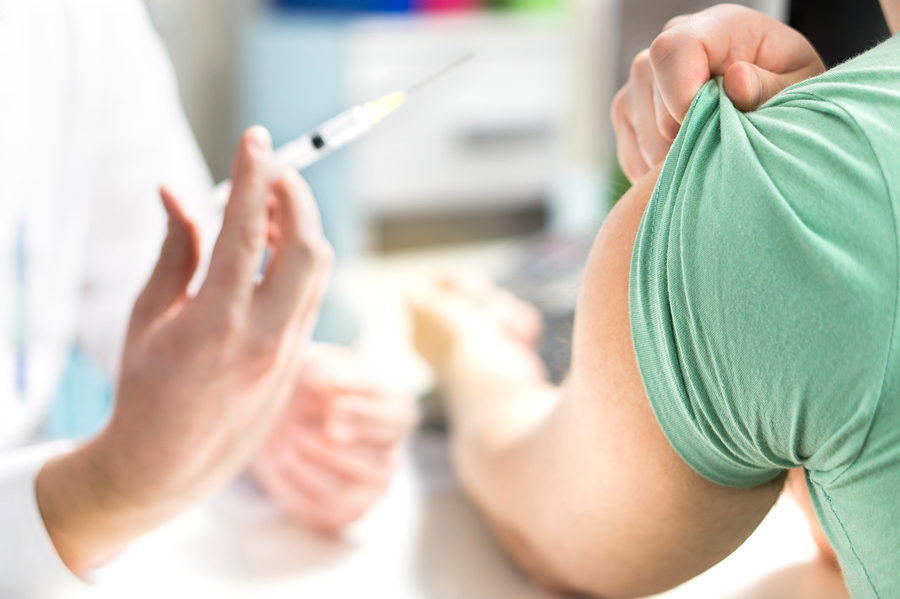If an animal is bitten by a rabid mammal, and they have never been vaccinated, there is little hope for survival. But what about humans? Humans on the other hand can be treated before or after being exposed to the Rabies virus. There are stringent vaccination schedules that must be properly implemented in order for the medicine to be effective.
Continue reading and review the general Rabies vaccination schedule for humans, pre and post-exposure.

The Rabies Threat
Rabies is a well-known and widely-feared virus that is highly contagious and commonly carried by many species of mammal. Raccoon, bats, birds, dogs, cats, foxes, and are not only susceptible to the virus, but are common carriers of the disease. It is passed along and transmitted through the infected mammal’s saliva, either through bodily fluids, open wounds, scratches, or bites. If treatment is neglected, the Rhabdovirus is always fatal. Fortunately, modern advances in veterinary care allow us the opportunity to vaccinate our domesticated pets with a Rabies vaccine and protect them from contracting the fatal virus.
Pre-Exposure Rabies Vaccination Schedule for Adults
If a human is exposed to Rabies and goes untreated, respiratory failure, gastrointestinal complications, or central nervous system failure will cause death in the first 7 days. For those involved in vocations or organizations that require contact with sick, wild, or exotic animals, a pre-exposure Rabies vaccination is highly encouraged and effective preventative maintenance. People like zookeepers, animal handlers, Rabies laboratory workers, spelunkers, veterinarians, animal control contractors, animal rescue workers, and those in similar lines of work should be given a vaccination for preventative protection.
Here is the schedule for people who have never had a Rabies vaccination before, and have not yet been exposed to or infected by the virus:
A Total of 3 Doses on Three Separate Occasions:
↳ Day 1 = Dose One
↳ Day 7 = Dose Two
↳ Day 21-28 = Dose Three
Here is the vaccination schedule for people who have been exposed to the Rabies virus without ever having been vaccinated in the past:
A Total of 4 Doses Plus One Shot on Three Separate Occasions:
↳ Dose 1 = Administered Immediately After Exposure
↳ Dose 2 = Three Days After Initial Dose
↳ Dose 3 = Seven Days After Initial Dose
↳ Dose 4 = Fourteen Days After Initial Dose
↳ Rabies Immune Globulin Shot = Given at the Time of First Dose
Here is the vaccination schedule for people who have been exposed to the virus and have had a Rabies vaccination in the past:
A Total of 2 Doses on Two Separate Occasions:
↳ Dose 1 = Immediately After Exposure
↳ Dose 2 = Three Days After the Initial Dose
*To find a Rabies vaccination clinic in your city, view the Passport Health Travel Clinic.
Raccoon Control
If you spot raccoons or other wild animals on your property, be sure to keep your distance to avoid provocation and fear that could cause animals to attack. You never know what diseases an animal has, so it is best to avoid contact at all times. If you suspect you have a raccoon problem, call a local wildlife removal company for safe and humane raccoon control services. Better protect yourself, your family, and your property by preventing raccoons and other animals from visiting each night.
Louisville Raccoon Removal You Can Count On
Call 502-553-7622 for safe and humane Louisville raccoon removal services today. We offer a wide range of services for residential and commercial properties, including raccoon removal, control, prevention, proofing, cleanup, attic restorations, and more. Call 502-553-7622 to request a free estimate or information about Louisville raccoon control, today.

